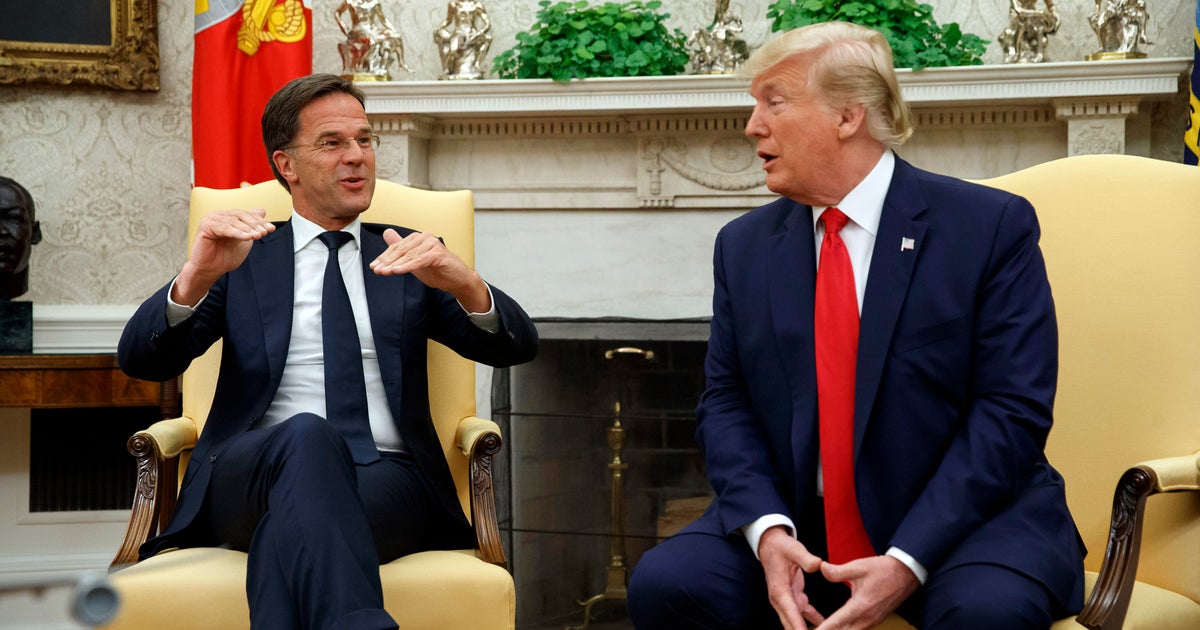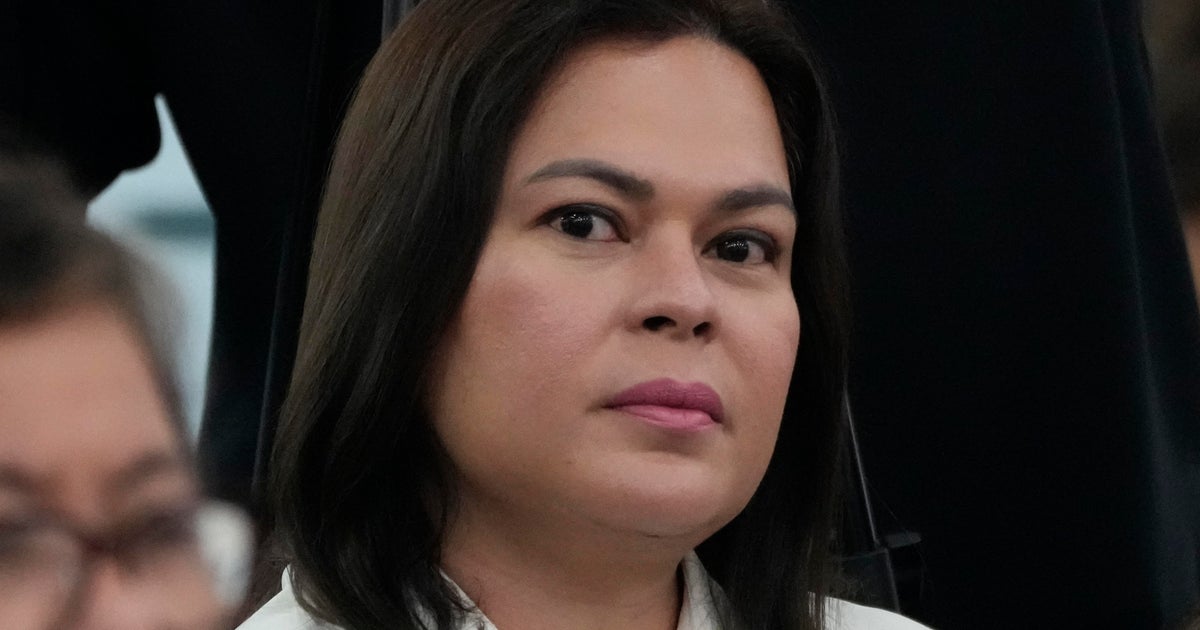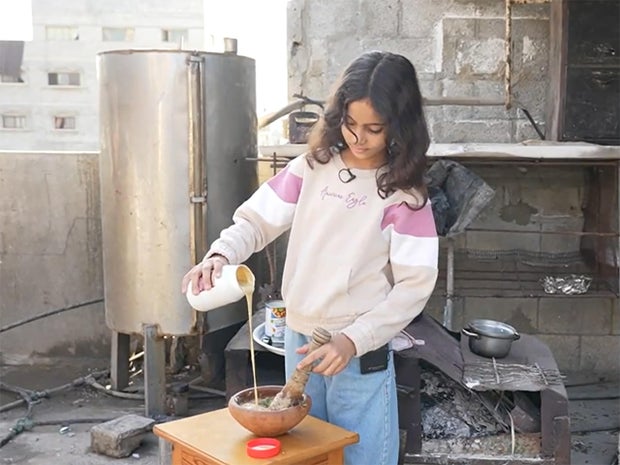CBS News
Depressed about politics? This happiness expert has some advice to help you get through 2024.

Election season is stressful — but there are ways to make it less so as we face months of campaigning in 2024, a happiness expert shared on “CBS Mornings.”
First, don’t put politics ahead of your “big four,” suggests Arthur C. Brooks, a Harvard professor who studies the science of happiness and is the best-selling co-author with Oprah Winfrey of “Build the Life You Want: The Art and Science of Getting Happier.”
The “big four” are the habits and priorities the happiest people share, Brooks says, which include:
Faith: “Faith is different for different people. It might even not be religious, but something bigger than you,” he explains.
Family: “Family life are these mystical relationships that you didn’t choose, and God knows you wouldn’t have in many cases.”
Friends: “Friendship is critically important across all different kinds of lines,” he says, adding “we shouldn’t be deciding our friendships on the basis of what political party you vote for. And traditionally, we didn’t.”
Impactful work: “Last but not least is working to serve other people,” he adds.
“That’s kind of your happiness 401(k) plan,” Brooks says. “These are the things we need to be paying attention to — not politics.”
Why voters feel depressed
But with politics all around us, it can be hard to ignore. And if you’re already feeling down about politics, you’re not alone.
More than 40% of voters feel a rematch campaign between President Biden and former President Trump will be “depressing,” according to a recent CBS News poll.
Brooks says the way politics has been conducted for the past 10 years is partly to blame.
“It’s dedicated to stimulating these ancient structures in the brain of — my people, their people. In group, out group. My village, my tribe. And what it’s doing is setting Americans against Americans,” he explains. “When politicians or media or social media or anybody is telling you that you should hate somebody in your family, you should get rid of one of your friends because of politics — which 1 in 6 Americans has done since 2016 — it’s craziness.”
The result? Unhappy people.
“The unhappy person is the hater, is the person who has been told to actually do that. And that’s what the political parties and leaders have been doing,” Brooks says.
Complaining about politics can add to this unhappiness, Brooks says.
“When your political involvement is all about screaming at the TV or writing on social media, that’s actually incredibly disempowering to you,” he says, adding that if people don’t like what’s going on, the most important thing they can do to feel empowered is to get actively involved.
“Get involved at a local level, find out what’s happening in their local communities,” he says. “When they do that, when they give, when they volunteer, when they pay attention to local politics, life changes a lot.”
“Look, this is an entertainment complex in Washington, D.C. at this point,” Brooks observes. “It’s bringing us down, quite frankly.”
How to navigate politics and family
Having friends and family with differing political views can make matters more challenging. But how we approach these relationships can have a large impact on how we feel.
“When you’re in a conversation with somebody that you love, for example, your family member, your friend, and you’re starting to feel defensive about politics — interrogate that feeling itself,” Brooks says.
He suggests asking yourself: What is actually the best emotion that I can have toward this person?
“In many cases it would be, I should be actually interested in why they think this. I love this person, why would they think this way?”
Brooks says after he started approaching these conversations with the curiosity of a researcher, it’s made it easier to not feel defensive or take things personally when people say things he disagrees with.
“I want to know why they think that way,” he says. “Everybody can be a researcher around the kitchen table.”
If politics are too polarizing for your family, however, it’s also fair to leave it out of the conversation.
That’s advice shared recently by Leanna Stockard, a licensed marriage and family therapist with mental health care company LifeStance Health.
“It is more than OK to decide that you do not want to engage in political discussions at family gatherings and ask your family members to respect your decision ahead of time,” Stockard told CBS News.
CBS News
Dishing up space food – CBS News

Watch CBS News
Be the first to know
Get browser notifications for breaking news, live events, and exclusive reporting.
CBS News
In praise of Seattle-style teriyaki

Watch CBS News
Be the first to know
Get browser notifications for breaking news, live events, and exclusive reporting.
CBS News
Gazan chefs cook up hope and humanity for online audience

Renad Atallah is an unlikely internet sensation: a 10-year-old chef, with a repertoire of simple recipes, cooking in war-torn Gaza. She has nearly a million followers on Instagram, who’ve witnessed her delight as she unpacks parcels of food aid.
CBS News
We interviewed Renad via satellite, though we were just 50 miles away, in Tel Aviv. [Israel doesn’t allow outside journalists into Gaza, except on brief trips with the country’s military.]
“There are a lot of dishes I’d like to cook, but the ingredients aren’t available in the market,” Renad told us. “Milk used to be easy to buy, but now it’s become very expensive.”
I asked, “How does it feel when so many people like your internet videos?”
“All the comments were positive,” she said. “When I’m feeling tired or sad and I want something to cheer me up, I read the comments.”
We sent a local camera crew to Renad’s home as she made Ful, a traditional Middle Eastern bean stew. Her older sister Noorhan says they never expected the videos to go viral. “Amazing food,” Noorhan said, who added that her sibling made her “very surprised!”
After more than a year of war, the Gaza Strip lies in ruins. Nearly everyone has been displaced from their homes. The United Nations says close to two million people are experiencing critical levels of hunger.
Hamada Shaqoura is another chef showing the outside world how Gazans are getting by, relying on food from aid packages, and cooking with a single gas burner in a tent.
Shaqoura also volunteers with the charity Watermelon Relief, which makes sweet treats for Gaza’s children.
In his videos online, Shaqoura always appears very serious. Asked why, he replied, “The situation does not call for smiling. What you see on screen will never show you how hard life is here.”
Before dawn one recent morning in Israel, we watched the UN’s World Food Program load nearly two dozen trucks with flour, headed across the border. The problem is not a lack of food; the problem is getting the food into the Gaza Strip, and into the hands of those who desperately need it.
The UN has repeatedly accused Israel of obstructing aid deliveries to Gaza. Israel’s government denies that, and claims that Hamas is hijacking aid.
“For all the actors that are on the ground, let the humanitarians do their work,” said Antoine Renard, the World Food Program’s director in the Palestinian territories.
I asked, “Some people might see these two chefs and think, well, they’re cooking, they have food.”
“They have food, but they don’t have the right food; they’re trying to accommodate with anything that they can find,” Renard said.
Even in our darkest hour, food can bring comfort. But for many in Gaza, there’s only the anxiety of not knowing where they’ll find their next meal.
For more info:
Story produced by Mikaela Bufano. Editor: Carol Ross.
See also:
“Sunday Morning” 2024 “Food Issue” recipe index
Delicious menu suggestions from top chefs, cookbook authors, food writers, restaurateurs, and the editors of Food & Wine magazine.









